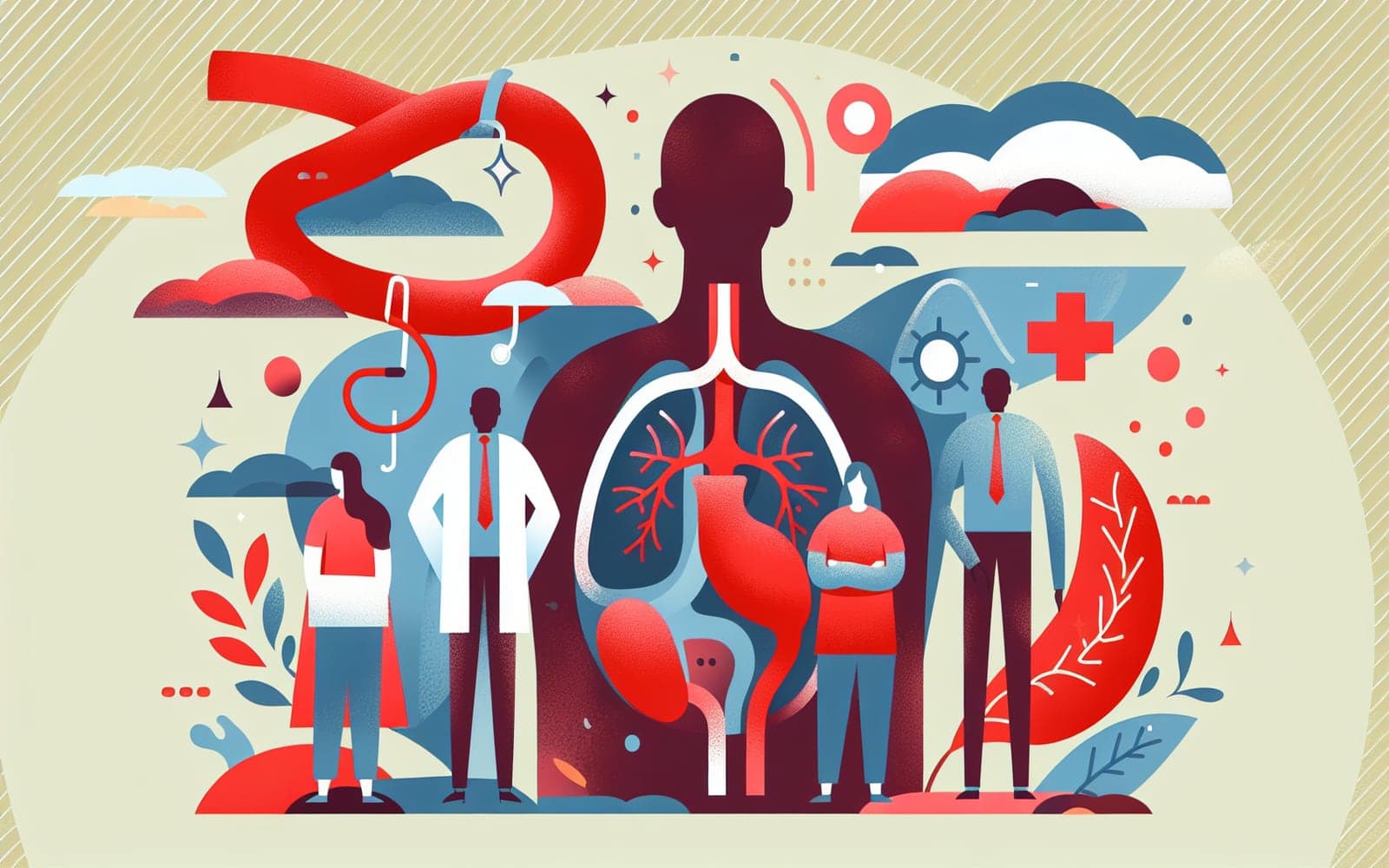Portal Hypertension: The Silent Threat Behind Variceal Bleeding
Published: Mar 11, 2024
Portal hypertension is a serious condition that often flies under the radar. It's the main driver behind dangerous complications like variceal bleeding in people with liver disease.
Contents
What Is Portal Hypertension?
Portal hypertension occurs when blood pressure in the portal vein system becomes too high. This system carries blood from the digestive organs to the liver. In a healthy liver, this pressure is low. But when liver disease causes scarring, it's like putting a kink in a garden hose - pressure builds up behind the blockage.
Measuring the Pressure
Doctors use a measurement called the hepatic venous pressure gradient (HVPG) to assess portal hypertension. An HVPG above 10 mmHg indicates significant portal hypertension. When it reaches 12 mmHg or higher, the risk of variceal bleeding increases dramatically. It's like a pressure cooker - the higher the pressure, the greater the danger.

Beyond Varices: Other Complications
Portal hypertension doesn't just cause variceal bleeding. It can lead to fluid buildup in the abdomen (ascites), confusion due to toxin buildup (hepatic encephalopathy), and enlarged blood vessels in the stomach lining (portal hypertensive gastropathy). These complications can significantly impact quality of life and survival.
Frequently Asked Questions
Treating underlying liver disease can help reduce pressure.
Through blood tests, imaging studies, and sometimes invasive pressure measurements.
Most do, but the severity varies.
Key Takeaways
Understanding and managing portal hypertension is crucial for preventing life-threatening complications in liver disease.
Discuss your risk of portal hypertension with Doctronic and learn about monitoring options.Related Articles
References
Bosch J, Groszmann RJ, Shah VH. Evolution in the understanding of the pathophysiological basis of portal hypertension: How changes in paradigm are leading to successful new treatments. J Hepatol 2015; 62:S121.
Ripoll C, Groszmann R, Garcia-Tsao G, et al. Hepatic venous pressure gradient predicts clinical decompensation in patients with compensated cirrhosis. Gastroenterology 2007; 133:481.
Always discuss health information with your healthcare provider.